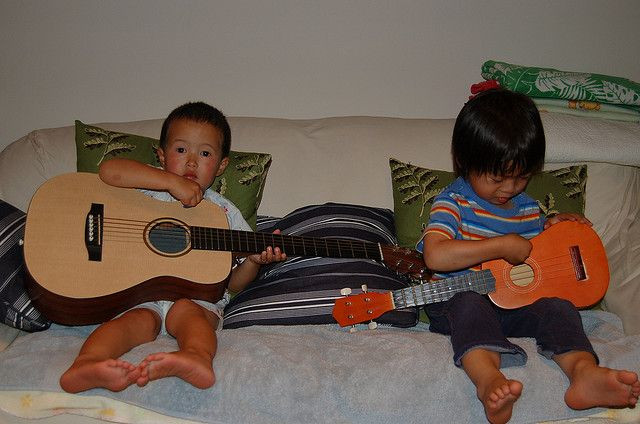Singing And Creating Music May Help Children With Cooperation And Problem-Solving Skills

Music is used in homes to lull babies to sleep and in classrooms to teach kids about different concepts, but listening to music isn’t the only thing that can benefit children. According to a new study, creating music can help improve social behavior and problem solving skills in children.
Researchers from the School of Psychology at the University of West London gathered 24 boys and 24 girls — all of whom were 4 years old — and separated them into two groups, one with music and another without. Children in the music group sang and played a percussion frog, a frog-shaped wooden instrument with bumps on its back. Meanwhile, those who were in the no music group only listened to stories.
After playing music or hearing stories, children participated in games that tested for cooperative behavior and problem-solving skills. Researchers found that children in the music group were 30 times more likely to help with activities compared to those who heard stories, according to Psych Central. Girls were also 20 times more likely than boys to help during the game.
When it came to cooperative behavior, children who played music were six times more likely to cooperate than those in the no music group. Again, girls cooperated more than boys.
“The study … highlights the need for schools and parents to understand the important role music making has in children’s lives in terms of social bonding and helping behaviors,” said Rie Davies, a student at the school of psychology. “Music making in class, particularly singing, may encourage pupils with learning differences and emotional difficulties to feel less alienated in the school environment.”
The benefits of music are not limited to children. Another recent study found that listening to music for only 30 minutes a day increased cardiac function and exercise capacity by 19 percent among adults. Other research has also found that playing music increased overall outlook on life while lowering blood pressure at the same time.
Published by Medicaldaily.com



























